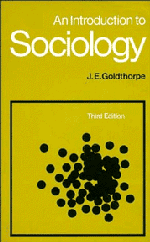Foreword by Audrey I. Richards
Published online by Cambridge University Press: 05 July 2011
Summary
What exactly is sociology? This is the question our friends so often ask us and which we find so difficult to answer precisely. ‘The study of society’? Yes, but we are part of society. We live and work and think and play in the context of a society, so that when it comes to the point, there are very few subjects in a university curriculum that cannot be said to have a social bearing. Economics gives us the principles which govern our consumer or producer choices, but it is ultimately our social values which determine how hard we are prepared to work. Economic history asks, and tries to answer, questions that are mainly sociological ones. Social psychology tells us how people behave as members of groups, that is to say, of society. We talk of the sociology of medicine, of education, of communications, and even of advertisement. Is sociology a separate subject at all, or is it merely a perspective or a point of view?
It is certainly a term that people sometimes find useful just because it is not too precise! Administrators tend to speak of ‘sociological factors’ when they mean aspects of a problem which are felt to be important, and even disturbing, but for which a ministry has no expert advisers, and with which there is no department ready to deal.
- Type
- Chapter
- Information
- An Introduction to Sociology , pp. v - viPublisher: Cambridge University PressPrint publication year: 1985



